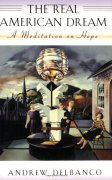The last Christmas I was not a believer in Christ was in 1976. It was what I would call a haunted Christmas. To understand why I use that term, I have to go back to the Christmas of 1973.
 In the fall of 1973, I went to Europe as a college student to look for “the meaning of life” or something like that. I traveled by myself, dropping in and out of travel companions and also in and out of loneliness. I survived, with lots of adventures to tell. In the wake of this trip, I fully embraced an existential worldview–meaning, if there was any meaning to life, was found in my own self-determined actions. I accepted what had been growing in me, that I was an atheist. My memories of Christmas from that year (I returned from Europe a week before) were that it was all a joke, a hoax for weak people who could not deal with the reality that there is no God. Merry Christmas.
In the fall of 1973, I went to Europe as a college student to look for “the meaning of life” or something like that. I traveled by myself, dropping in and out of travel companions and also in and out of loneliness. I survived, with lots of adventures to tell. In the wake of this trip, I fully embraced an existential worldview–meaning, if there was any meaning to life, was found in my own self-determined actions. I accepted what had been growing in me, that I was an atheist. My memories of Christmas from that year (I returned from Europe a week before) were that it was all a joke, a hoax for weak people who could not deal with the reality that there is no God. Merry Christmas.
The next three Christmases (’74, ’75, ’76) were not so well defined for me. By the fall of 1974, I had started to become weary of the inner anger it took to hold onto my atheism. I wasn’t sure what was true or false, but I didn’t like who I was becoming. And so began a gradual opening of my mind to the idea of God. The more I opened my mind and heart to him, the more I began to be haunted by him. By haunted, I mean thoughts entered my head like, “I wonder if he is real?” “Why do I feel things like love and hate?” “Does he make demands of people?” and, “Is he personal?” These thoughts grew over those years. Christmas (and Easter) became haunted by questions of, “What if it’s true?” By 1976, I was so haunted that I really wanted to believe, I just didn’t have the occasion to.
That God does not exist I cannot deny. That my whole being cries out for God, I cannot forget. Jean-Paul Sartre
What was going on? Why so haunted? I am not the first person to experience this. One of my existentialist heroes, Jean-Paul Sartre, said, “That God does not exist I cannot deny. That my whole being cries out for God, I cannot forget.” Sartre was haunted by his desire for God and honest enough to admit it. British author, Julian Barnes says, “I don’t believe in God, but I miss him.” Again, the mind won’t allow for what the heart yearns. Blaise Pascal frames the intellectual dilemma by saying that there will never be enough evidence to prove with certainty that God exists or doesn’t exist. That doesn’t mean, however, that there is no evidence. Canadian philosopher Charles Taylor says that secular space is “haunted by transcendence,” which tempts secular people toward belief. Tempted by belief–that is exactly what the Christmas of 1976 did! And as much as I was tempted by belief, I also doubted my doubts.
What wasn’t true had become what might be true had become what is true. Christ was born; he was born in me.
The fall of 1977 was the occasion for faith in my life. I committed all I could of myself to all I knew of Jesus Christ. That Christmas was different. It was not haunted, at least not in the same way. There was something new in the singing of carols and Christmas Eve service. What wasn’t true had become what might be true had become what is true. Christ was born; he was born in me. Merry Christmas!
–Pastor Mark, The Imperfect Pastor
Follow Me, and I will make you fishers of men. (Matthew 4:19 NKJV)



 I guess if I had a problem with pornography, I wouldn’t admit it. I love being a pastor and I fear it would be too big of a secret to manage in a healthy way. But I have a history with pornography — regarding how I view it. This history has come by walking with men who have been honest with me about their struggles. I have moved from a place of condemnation to compassion for those who are users.
I guess if I had a problem with pornography, I wouldn’t admit it. I love being a pastor and I fear it would be too big of a secret to manage in a healthy way. But I have a history with pornography — regarding how I view it. This history has come by walking with men who have been honest with me about their struggles. I have moved from a place of condemnation to compassion for those who are users. The user himself (I know women also use porn, but stats show it is still mostly men) is dehumanized, as with any addiction, he has become enslaved to a master that is never satisfied. Self-deceit is always present. The recent
The user himself (I know women also use porn, but stats show it is still mostly men) is dehumanized, as with any addiction, he has become enslaved to a master that is never satisfied. Self-deceit is always present. The recent 




 This past year I have had several interactions with Muslims. My experience, with one exception, has been very positive (the exception was a case of mental health, I believe). Since I often get asked questions about Islam, on which I am no expert, here are some observations that I am prepared to make.
This past year I have had several interactions with Muslims. My experience, with one exception, has been very positive (the exception was a case of mental health, I believe). Since I often get asked questions about Islam, on which I am no expert, here are some observations that I am prepared to make. The Muslims I have met are well-educated Westernized Sunnis and are concerned that Islam has been co-opted by fundamental radicalized Muslims. They speak against this both to me and publicly. They don’t want Islam to be characterized as a religion of violence but of peace. They are concerned about the public image of their chosen religion.
The Muslims I have met are well-educated Westernized Sunnis and are concerned that Islam has been co-opted by fundamental radicalized Muslims. They speak against this both to me and publicly. They don’t want Islam to be characterized as a religion of violence but of peace. They are concerned about the public image of their chosen religion.



 qualified by something like, “if you just put your mind to it”) is partly myth. I think
qualified by something like, “if you just put your mind to it”) is partly myth. I think 
 Denial of Death
Denial of Death after he wrote it. He has incredible insight into our propensity to try to fool ourselves regarding death as the ultimate limit. One of the things we do is look for heroic figures who don’t seem to have the same limits we do, people who can dazzle us with their abilities, good looks, or self-confidence. They make great commencement speakers. But others have pointed out that this myth can be the cause of depression and mid-life crisis. Facing our limits can be the same as grieving a loss.
after he wrote it. He has incredible insight into our propensity to try to fool ourselves regarding death as the ultimate limit. One of the things we do is look for heroic figures who don’t seem to have the same limits we do, people who can dazzle us with their abilities, good looks, or self-confidence. They make great commencement speakers. But others have pointed out that this myth can be the cause of depression and mid-life crisis. Facing our limits can be the same as grieving a loss. 
 We all agree that judgmentalism is wrong.
We all agree that judgmentalism is wrong.
 the
the  I might also add that Jobs loved innovation and for being extremely wealthy, he, for the most part, was not a materialist. He loved focus and simplicity. “Simple can be harder than complex; you have to work hard to get your thinking clean to make it simple.” Jesus also had a way of making the complex profoundly simple. “Who of you by worrying can add a single hour to your life?” Or, “Where your treasure is, there your heart will be also.”
I might also add that Jobs loved innovation and for being extremely wealthy, he, for the most part, was not a materialist. He loved focus and simplicity. “Simple can be harder than complex; you have to work hard to get your thinking clean to make it simple.” Jesus also had a way of making the complex profoundly simple. “Who of you by worrying can add a single hour to your life?” Or, “Where your treasure is, there your heart will be also.” ignoring reality. At times, it’s a fancy way to say, “he lied.” There were times where this was positive in a vision-casting sort of way, but more often than not his behavior hurt other people. His reality distortion tied into his perfectionism. Oh, how he strived to get things just right at any cost, which meant he could be very hard on people. Isaacson says Jobs had a way of categorizing people either as “a hero or a bozo.” It was all about how others helped him accomplish his agenda. Hmm, not like Jesus.
ignoring reality. At times, it’s a fancy way to say, “he lied.” There were times where this was positive in a vision-casting sort of way, but more often than not his behavior hurt other people. His reality distortion tied into his perfectionism. Oh, how he strived to get things just right at any cost, which meant he could be very hard on people. Isaacson says Jobs had a way of categorizing people either as “a hero or a bozo.” It was all about how others helped him accomplish his agenda. Hmm, not like Jesus.